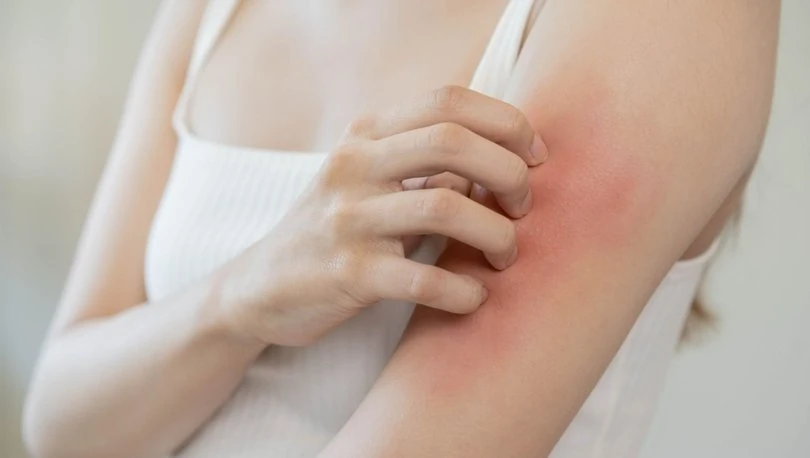What is Eczema?
Eczema is a chronic skin condition that causes red, itchy, and inflamed patches on the skin. It is often caused by allergies and can affect people of all ages. It can be triggered by environmental factors, such as weather, stress, and irritants.
Eczema is not contagious, but it can be very uncomfortable and even painful. It is important to take proper care of the affected areas to prevent flare-ups. Treatment options include topical creams, ointments, and oral medications.
Eczema can be managed with lifestyle changes, such as avoiding triggers, wearing loose-fitting clothing, and using gentle cleansers. It is important to see a doctor if symptoms worsen or do not improve with treatment.
How Does Eczema Go?
Eczema is a chronic condition, meaning it can last for long periods of time. It may come and go, with periods of flare-ups and remissions. Flare-ups can be triggered by environmental factors, such as weather, stress, and irritants.
Treatment options vary depending on the severity of the eczema. Mild cases may be treated with topical creams and ointments, while more severe cases may require oral medications. It is important to see a doctor if symptoms worsen or do not improve with treatment.
It is important to take proper care of the affected areas to prevent flare-ups. Lifestyle changes, such as avoiding triggers, wearing loose-fitting clothing, and using gentle cleansers, can help manage eczema and reduce symptoms.
Preventing Eczema Flare-Ups
Eczema flare-ups can be prevented by avoiding triggers, such as environmental factors, stress, and irritants. It is also important to take proper care of the affected areas to reduce symptoms. Wearing loose-fitting clothing, using gentle cleansers, and avoiding scratching can help prevent flare-ups.
Treatment options vary depending on the severity of the eczema. Mild cases may be treated with topical creams and ointments, while more severe cases may require oral medications. It is important to see a doctor if symptoms worsen or do not improve with treatment.
Eczema is a chronic condition, but it can be managed with lifestyle changes and proper treatment. It is important to take the necessary steps to prevent flare-ups and reduce discomfort.
Eczema and Stress
Stress can be a major trigger for eczema flare-ups. It is important to reduce stress levels and practice relaxation techniques, such as yoga and meditation, to help manage symptoms. Avoiding triggers, such as environmental factors, stress, and irritants, can also help prevent flare-ups.
Treatment options vary depending on the severity of the eczema. Mild cases may be treated with topical creams and ointments, while more severe cases may require oral medications. It is important to see a doctor if symptoms worsen or do not improve with treatment.
Eczema is a chronic condition, but it can be managed with lifestyle changes and proper treatment. Taking the necessary steps to reduce stress and prevent flare-ups can help reduce discomfort and improve quality of life.
Treating Eczema
Treatment options for eczema vary depending on the severity of the condition. Mild cases may be treated with topical creams and ointments, while more severe cases may require oral medications. It is important to see a doctor if symptoms worsen or do not improve with treatment.
In addition to medical treatment, lifestyle changes can help manage symptoms. Avoiding triggers, such as environmental factors, stress, and irritants, can help prevent flare-ups. Wearing loose-fitting clothing, using gentle cleansers, and avoiding scratching can also help reduce discomfort.
Eczema is a chronic condition, but it can be managed with proper treatment and lifestyle changes. Taking the necessary steps to reduce stress and prevent flare-ups can help reduce discomfort and improve quality of life.
Living with Eczema
Eczema is a chronic condition, but it can be managed with proper treatment and lifestyle changes. Taking the necessary steps to reduce stress and prevent flare-ups can help reduce discomfort and improve quality of life. Avoiding triggers, such as environmental factors, stress, and irritants, can help prevent flare-ups.
In addition to medical treatment, lifestyle changes can help manage symptoms. Wearing loose-fitting clothing, using gentle cleansers, and avoiding scratching can also help reduce discomfort. It is important to take proper care of the affected areas to prevent flare-ups.
Eczema can be a challenging condition to live with, but it is possible to manage it with the right treatment and lifestyle changes. It is important to see a doctor if symptoms worsen or do not improve with treatment. With proper care, it is possible to reduce symptoms and improve quality of life.
Wearing loose-fitting clothing, using gentle cleansers, and avoiding scratching can also help reduce discomfort. It is important to talk to a doctor if symptoms worsen or do not improve with treatment.
Keywords: Eczema, ChronicSkinCondition, Red, Itchy, InflamedPatches, Allergies, EnvironmentalFactors, Stress, Irritants, Contagious, TreatmentOptions, TopicalCreams, Ointments, OralMedications, LifestyleChanges



